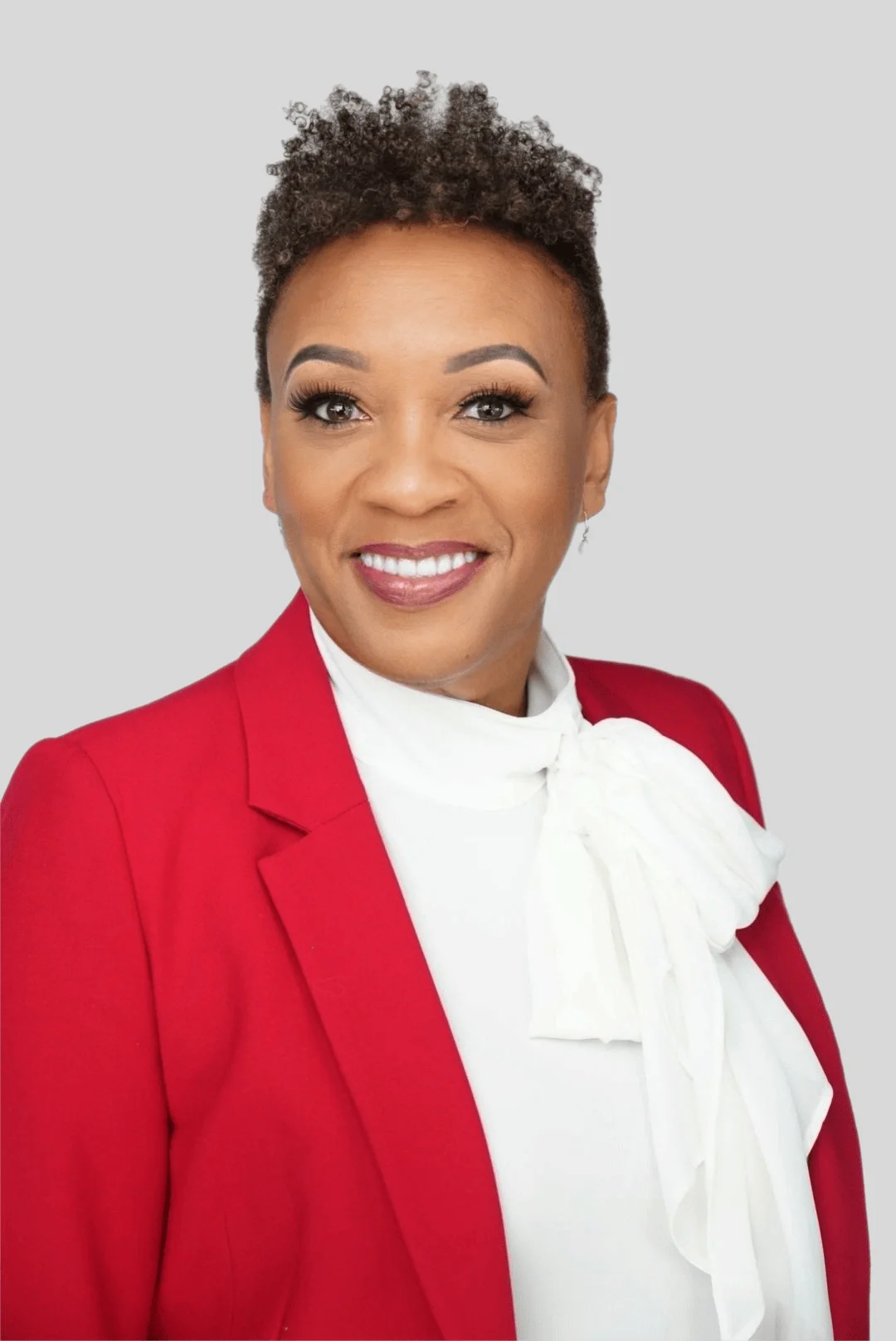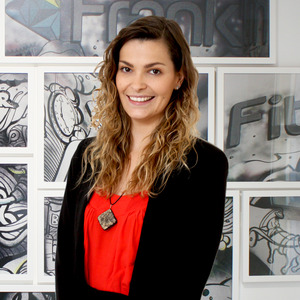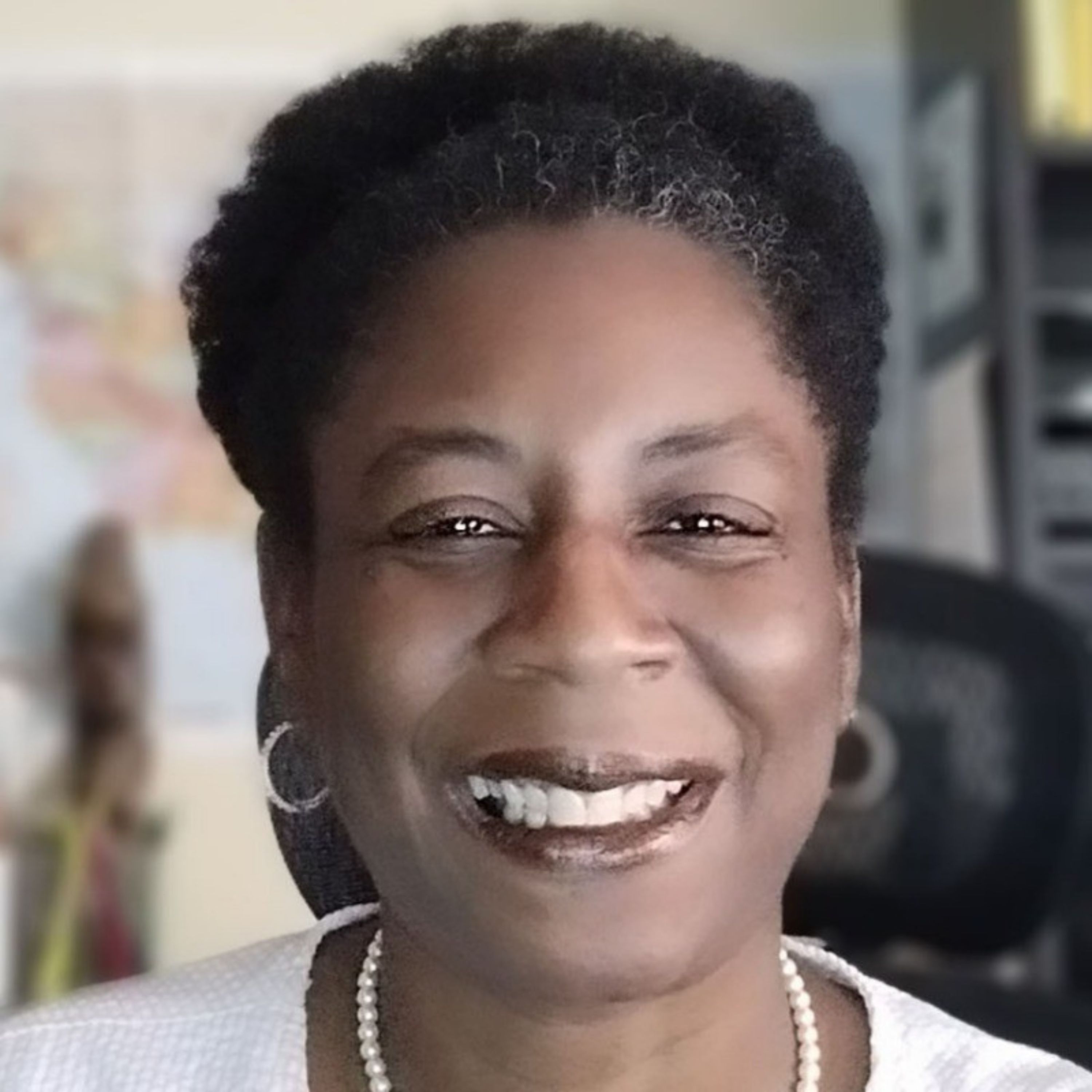
Tech Talent Spotlight: Sarah C. Foss
17 Sept, 202510 MinutesSarah C. Foss - Chief Technology Officer | Top 100 Women in Tech Leaders to Watch 2025 | Top...

Sarah C. Foss - Chief Technology Officer | Top 100 Women in Tech Leaders to Watch 2025 | Top 50 Women in Tech 2024 | 2024 Global Leadership Institute Award recipient in 2024 | Finalist for Philadelphia’s ORBIE Award for CIO of the Year 2022 and 2024
In this installment of our Tech Talent Spotlight series, we are joined by Sarah Foss, CTO, Top 100 Women in Tech Leaders to Watch 2025 and advocate for diversity in tech. Our discussion covered a wide range of topics, from how Sarah got her start to why CTO’s need to play celebrant by successfully marrying Tech and Operations. We also covered what a bird’s eye view can do for your strategy, and how crucial mentoring is in driving diversity and inclusion in your workplace and beyond.
Tell us about you! Could you share an insight into your background and your journey to becoming a Chief Technology Officer?
You bet. I started in broadcast engineering, which is a very niche type of engineering when you consider the fact that telecommunication has a lot of very bespoke technology. What I realized very early in my career was that this stuff called software was really going to be taking over infrastructure, no matter what type of infrastructure it was.
So, I made a pivot early in my career to facilitating digital transformations. Being in a more mature business we needed to bring in software and train engineers in it.
That meant that I needed to understand what lots of different technology could do, and for 20+ years I have been really leaning into software first as my background. Running technology companies or being a CTO or a CIO means you have to understand how to take business objectives, technology, infrastructure, and new technologies and marry all of those things together.
That's what I love to do, really accelerate business growth and transformation through technology.
How did you get started? What made you go into Broadcast Engineering?
Originally I thought I would be in front of a camera. I started out thinking I would be a journalist when I realized two things. One, I was very good at understanding and troubleshooting the technology that was making content. It started as natural curiosity, and it felt like putting together my left and right brain skills!
The second thing I realized was that I had no desire to be a part of filming - it’s very cutthroat to be in front of a camera. So here too, I kind of did an early switcheroo in uni. I went into much more technology-centric studies and then came straight out into a job managing an engineering team.
It was fun because I was working at the first TV station in the United States that had very advanced technology. It was actually in Seattle, WA, where Microsoft, Boeing, and other large corporations were all leaning into new technologies. Therefore, I gained a lot of insight through that too, and that's when I said, wait a minute, I love this. I love the fact that no two days are the same. I loved being able to clearly articulate what technology strategy needed to be while also being able to troubleshoot and implement it.
You mentioned your 20+ years within tech, in that time what would you say stands out as the most defining moment in your career or something that you're particularly proud of?
So that’s a very hard question to answer! Mostly because I love helping businesses understand new technology, so from a career perspective, I always wanted to do the new thing. At the same time, I didn't want to do the new thing at the bleeding edge, but I wanted to enable it in for-profit businesses when I felt that it was ready for prime time. So, I found digital transformation, and I loved it. That was a defining moment for me.
Then there was a move to software as a service that helped define my career. Doing cloud and either migrating into the cloud, or thinking cloud-native, became a defining moment. And within the last two years it's been AI, AI, AI, right?
I like to think about how something new in technology can create value for a company, so all of those moments make it into my highlights.
Could you please talk about Cloud, AI and your experience a bit more?
Cloud became this massive movement towards ‘the sky is the limit’, literally and figuratively. Businesses rushed into moving directly into the cloud with everything. Everything moved to the cloud.
What I think happened over the first five years of businesses looking at cloud as a resource was that all of a sudden we started walking backwards. Once we started realizing that cloud has a cost, we also realized that cloud requires a completely different mindset of security. Cloud actually became a shift from how many traditional businesses capitalize technology investment, and all of a sudden it was becoming operational not just technological.
While that sounded really good, CFOs also started saying, ‘Hold on! Why is our OPEX unpredictable and a complete shift from where we were going?’
Cloud is a perfect example of new technology unlocking completely new capabilities that we never could have done as businesses before. Take the COVID pandemic, we would not have been able to manage that without cloud infrastructure. It doesn’t matter where in the world you were, we all relied on shared files and infrastructure management.
At the same time, Cloud really changed our balance sheet and the profiles of the IT professionals in support, networking and DevOps that we needed to hire. That’s the type of marriage between new tech and business that makes a difference. People really had to stop and say ‘What are we getting from this technology and is there a more effective way?’
What are we seeing now? A move to hybrid.
Now we’re hearing a different approach, something like:
‘Maybe it's actually better for us to have certain things in the cloud and a lot of other stuff back on the premises because I don't need that cost. Frankly, my users and my IT staff can better manage our files and data directly.’
It feels like there's a similar transformation going on with AI at the moment, would you agree?
A hundred percent. AI, I think, is very similar to cloud.
Just like you said, everyone thinks that this new tech is going to be a savior. ‘I am going to be able to completely change how many people I employ and how I manage security and technology’ etc.
At this juncture there are so many different areas of AI technology where a business must stick to their strategy and ask: Is this actually creating value? Is this increasing my cost? Is this creating a need for a different type of staff? Is this secure? Will my proprietary IP end up in another business’ AI data bank?
I think businesses are currently at the stage of asking: Is it creating value? Maybe, but at what cost? What is the risk-benefit-analysis?
We have to figure out how to protect businesses whilst leveraging new technology. It’s essential to do so in a way that ensures we're making efficiency gains in business values and the service we deliver to clients. This means taking the focus away from reducing the workforce or increasing workflow and production rate. I think we've got at least a couple more years, before the technology is off to the races in this regard.
I also think AI is creating new roles and new tasks in an organization. Rather than getting rid of your IT help desk you need to figure out how you can fact check what AI is suggesting. You need to ask yourself: ‘How do I make sure that my users are using prompt engineering effectively, so that I'm not getting hallucinations and incorrect information?’
It’s how humans interact with technology and AI that I think businesses are still wrestling with.
Is that something you're going to explore in your next venture?
Great question! Right now I’m looking into two startups that are leveraging AI in ways that I think systematically create value. They’re both saying to businesses: ‘Here is a responsible way to leverage an accelerated AI workflow in software development, ideation, innovation creation.’
Firstly, you must accept that AI and Gen AI is here to stay, and there is no going back. The question then becomes ‘What are the new roles that need to be created so that we know AI is being used responsibly, safely, and securely in enterprise settings?’.
At the same time, how do you also take an entire employee base and say AI is more than just throwing in ‘Build me a vacation itinerary for London’. You have to prove the value of leveraging the technology differently, and that requires a mindset shift.
To answer your question of ‘will AI be part of my next thing?’, It's part of what I'm doing right now… and I'm having a lot of fun!
Because this is a diversity in technology spotlight, I always ask: Have you observed any improvements in diversity and inclusion during your tenure within the industry?
I have absolutely seen improvement, in the form of more women and more diversity in technology leadership. Is it enough? Absolutely not.
But I remember a moment from early on in my career, I was going to a trade show as a young engineer. As I walked into a seminar of 300 engineers I counted only three women. There were three of us.
Now, fast forward to today, I can look around and say, look at that! There’s 30% of us showing diversity. I think that's a massive improvement.
I think one of the things that we still struggle with as an industry is attracting diversity into the courses and apprenticeships. That gives us an opportunity to say, this career is not only a great one, but it rewards people for bringing diverse thought. It rewards people for being different at thinking about how to innovate, how to support users, and how to manage security.
You have to be able to show that you consider many ways of doing things and different options of how people approach problems. Because fundamentally, technology is a lot of problem solving and there is no one way to solve a problem.
I think we need more mentoring. I think we need more role models, and I think that means that myself and others in leadership roles need to step up and be as visible as possible.
That allows folks to say, ‘Hey, I remember that Franklin Fitch thing, and there was a woman, a CTO. She seemed great, I can see myself doing that. I want to pursue something like that.’ I applaud you for doing this because it's a way to make this conversation more visible. It's representation that matters.
Reflecting on your journey, what stories can you share that demonstrate what it means to be a woman in tech? Any key advice to share from these stories?
There are a lot of stories that I share with women coming in where they say, ‘oh, we thought those stories were just made up!’
For example, the first time I walked into a meeting, my team members didn't know I was the boss, and they asked me to go get a cup of coffee. Back in the day, who’d have thought that? A bunch of men who could have been my dad were meant to report to me.
Early on I made it my responsibility to communicate as effectively as possible (whilst not walking away from who I am!) always making sure that who I am fits well within my environment. Ensuring I’m communicating, leading, and problem solving with everyone.
So are there a bunch of stories? Definitely. Whether it's showing up at a trade show and selling technology solutions while eight months pregnant and having all the men tell me to sit down while I’m going ‘I'm fine. I think I got this’, or breaking expectations as the manager.
What’s more important for me is how those stories taught me how to be more stylistically fluent with my communication. That's extremely important! Regardless of whether I’m speaking with you, another woman, speaking with a member of a different race, a different nation, (I’ve worked globally my whole life) or if it's just a man across the table, I have to be the clearest communicator I can be. I think that's something that is gender and race agnostic. Being a good communicator means I'm going to figure out how we can actually come to a shared understanding of what we're trying to accomplish together.
That’s what I've learned from all those stories. Frankly, many of the stories require a glass of wine, ha!
What kind of barriers to success have you come across, if any? How have you managed to overcome them?
Even though I just talked about how technology is a meritocracy from an intellectual perspective, that does not mean that when I show up at leadership events, go to an industry meeting or serve on a board I'm still not the only woman, because I am!
It’s a heavy burden. To be visible, to be really good at what I do and to make sure other people know that women or diverse individuals can do this job because the vast majority are still men. It's a barrier that we're breaking through, but it does require a really thick skin.
There still are comments periodically and most of the time they're not even made to hurt or to harm, they just are totally oblivious to the effect. I was working with a company that recently wanted to name a product with a ‘non-inclusive term’ and I finally said:
‘Did you even Google it? Because if you're a woman, that's not a good term’, and they said, ‘Oh no, we didn't even think of it because we were thinking of it from a war plane perspective’.
A lot of this stuff that still happens and I'm okay with making people aware of it because I chose the career for the challenge, and because I love it.
Do you think that initiatives like women in tech leaders awards and lists help?
Absolutely, for two reasons. I think elevating women in senior leadership positions for technology, makes it visible so that someone goes, ‘wait a minute, I can see myself doing this. There is a path to do it.’
The second thing is that in every single organization that I've been part of, whether it's ‘women we Admire’ or ‘Philly CIO’ or the one that I co-founded, called TechBae, community is essential. We need to support each other. We need to be there and show up for each other. That's something that women need to do in technology.
Highlighting places where we can create safe space networking, being able to share experiences and really help coach each other through it, are absolutely needed. And I think that one trait or behavior that women bring to the table in any type of organizational setting, which is partly stereotypical but also pretty well-proven, is a tendency to collaborate before we compete. Finding the ability to do that is a superpower of many women. And we still have to create community, so we can all go recharge our superpowers.
From your perspective, what is the primary obstacle for women to get into tech?
I think the primary obstacle for women getting into tech is feeling like it isn’t going to be a career path that they can pursue long-term. There are a number of STEM initiatives that have really elevated women to think about math and science. Oh, by the way, I'm old enough that I didn't believe I had those skills. I had to relearn that I do think this way in college, and then find a practical application through technology where I could really enjoy my love of STEM. But it doesn't seem like a flexible career. It doesn't seem like a career that allows you to grow in an accelerated way or step away to create a family if you want to do that or not.
Tech is very much a linear progression, and it requires a lot of mentoring and time out of the office to do it really well. As technology leaders we also have to show how technology is a viable and flexible career path that ensures multiple pivots. A career where multiple different types of skill sets can be applied.
My fundamental thing is if you're really good at problem solving, you can do a lot of things in technology. You can do a lot because that's really what we do. So, I think it's shifting how we think about the career path so that people say, okay, that is something I want to do.
You were Audacy’s first CTO, and you’ve held senior leadership titles in other businesses. Could you briefly outline how those companies have been positively impacted by your leadership?
I think one of the things that I have said multiple times is that technology is about problem solving. Businesses have lots of problems nowadays, and I think technology used to be seen as infrastructure rather than a part of the solution. It was a cost center, not a strategic accelerator.
The reason I became the first CTO of Audacy is because we were undergoing an accelerated digital transformation, which meant multiple business problems to solve. Success required extensive collaboration across C-Suite and teams in multiple locations across the country.
You can't do anything faster and do it well if you're not using the same roadmap, if you're not moving towards the same North Star. I think I’ve made that happen at multiple companies, finding out what our strategy is and knowing how to articulate it to enable technology teams and other non-technical people to walk the same path. I now know how to partner, how to collaborate so that we can all get real results and create value as quickly as possible. I think that's something that I, as an individual, bring to the table.
And being a woman creates a different dynamic in the room. It creates a different set of expectations with my team in lots of ways. It has helped me shatter norms, to say: Nope, that's what you used to do. We don't have to do it that same way.’
You mentioned community building earlier, and the community that you co-founded, TechBae. Could you tell us a bit more about that?
TechBae was founded because there were five of us in senior leadership roles that were realized every time we got together, even though we wanted to talk about non-work things, we found solace and support in talking about work. That’s when we thought:
‘If we feel this way, think about how others feel! Think about how powerful it could be, if we brought women in tech and allies in tech together and said two things. First, we want talk about how you actually do things differently in technology and share insights and share experiences. Secondly, we also want to share how do you get more diverse voices in the room, the butts in the seats that are going to make the change.’
We continued thinking, and arrived at the key question: how do we support them?
We really leaned into a combination of mentoring, peer coaching, networking events and tech forward panels and sessions that allowed us to also talk about tech. We were never losing sight of the goal, helping others to do the job as well as possible, helping people understand content and topics, supporting each other and bringing new people into the field.
That sounds really interesting and really helpful to boost growth as well. Are there any upcoming activities or events?
We ended up having to pivot during COVID, like so many others, to doing a lot more virtually. We have been partnering with other organizations primarily in the New York metropolitan region for our networking events. We just launched our fourth mentoring program with the big brothers, big sisters of New York City. We start with college-aged professionals that really want to understand tech. Then we partner them with a senior leader. It's been phenomenal! I love it because it creates a pipeline of people, especially with diverse backgrounds, interested in the field of technology. There are more things coming in the fall, too!
You've mentioned the importance of mentoring. Why do you think it’s crucial?
I think mentorship is the ability for someone with a lot of experience, to partner with someone who has different experience, and try and wrestle career problems in an objective fashion. That to me is what mentoring is. It's very different than coaching, where you’re much more of a cheerleader and making sure your coachee is hitting goals. The mentees that I have, they really do have a problem that they're trying to solve.
Maybe it's fit within an organization. Maybe it's pivot. Maybe it's a crazy boss. But over time, they're not just able to find their own voice, they can choose how to apply what they learned from mine and their past experiences, and consider how they would pursue things differently. As a mentor, I can share what I've done, but I'm also processing and problem solving on what you’re saying back to me.
I think it's a very deep collaborative conversation. I enjoy it because I get a chance to dive deep with people. Right now, I'm mentoring women and a couple of men, doing both! In all instances it's because they have a big problem. When we get past it, they may have another one or we may go on a hiatus. It’s a relationship where we ask ‘how can we attack this together?’
I was very lucky to have two different mentors in my life when I was much younger, both were men. People have always asked, did you have a female mentor? I didn’t. That would've been amazing. That’s one of the reasons why I care so much about it because in both instances they were able privately to say to me, ‘This is what we're observing, this is how you're approaching the problem and I want you to think differently about it. Let's really talk about it.’ It wasn't just the, encouragement and tips, gaining some new skills and climbing that ladder. It was candid, transformative conversations about me and I wanted that. In turn I'm now trying to do that with others that want to do it too.
Speaking about mentors, if you could have a one-to-one mentoring session with any tech or non-tech leader, past or present, who would it be and what, what would you ask them?
This one is really hard! What I realized is, that the two people I would love have a mentoring session with are not considered tech, but what they are good at is tech business!
If I had to pick one, it would be Jack Welch. I would love to understand how he approached building a massive organization that had to think so differently about moving mechanical tech into services. I’d ask: How do you set up a business to think about change and transformation as a constant?
That’s what Tech does now. The reason CTOs and CIOs have become much more visible as of late, especially in America, is because there is an acceptance of the fact that tech is always going to impact the business. It's constant change and I think the CTOs and the CIOs of the world are being asked to think not only about accelerating the change, but also managing change, all while most of your peers don’t know what you’re doing
Jack Welch was known for that. Whether you liked his methods or not, he led radical change.
Change management is so hard, because it has the most unpredictable factor, people. Businesses think:
‘Okay, well what's the tech and how are we going to implement it? And how are you going to manage the change? You've got a project plan, right? You've got agile methodology to help make sure that we're iterating change?’
They throw all these things at you and at the end of the day, this is just basic people management, leadership, evangelism. Inspiration. This is all of that. Everything else you can manage through systems well enough, but you can't create a system for how people are going to show up.
That was very insightful, thank you! One final question, what would you say is your best piece of advice for women who would like to start a career in IT and technology?
Another hard question! My first piece of advice for women who are thinking of IT and technology is: Do it. Just do it!
It is so fun and there's so much opportunity. There are pathways for you to grow, be challenged, and be well compensated. All of that exists in this field. This field is going to stick around, it's going to change and it's going to be an awesome place for smart, talented, hardworking individuals. That's my inspirational piece, just do it. Don't be scared. There are more of us than you think.
The second piece is be prepared to work hard.
You do not skate through tech. Tech is not a field where you can show up and just clock in and clock out. It just isn't that way. That’s what makes it a brilliant meritocracy.
So it's ‘just do it’ and ‘work hard’. There are a lot of rewards, whether they are career compensation or personal satisfaction, that can be earned from a career in technology.
We’re very grateful to Sarah for taking the time to speak with us and share her insights into the tech industry. The conversation was engaging and full of discussions of powerful ideas that really resonated with our team. The perspectives Sarah shared certainly inspired us, we’re sure they’ll go on to inspire you, too!






